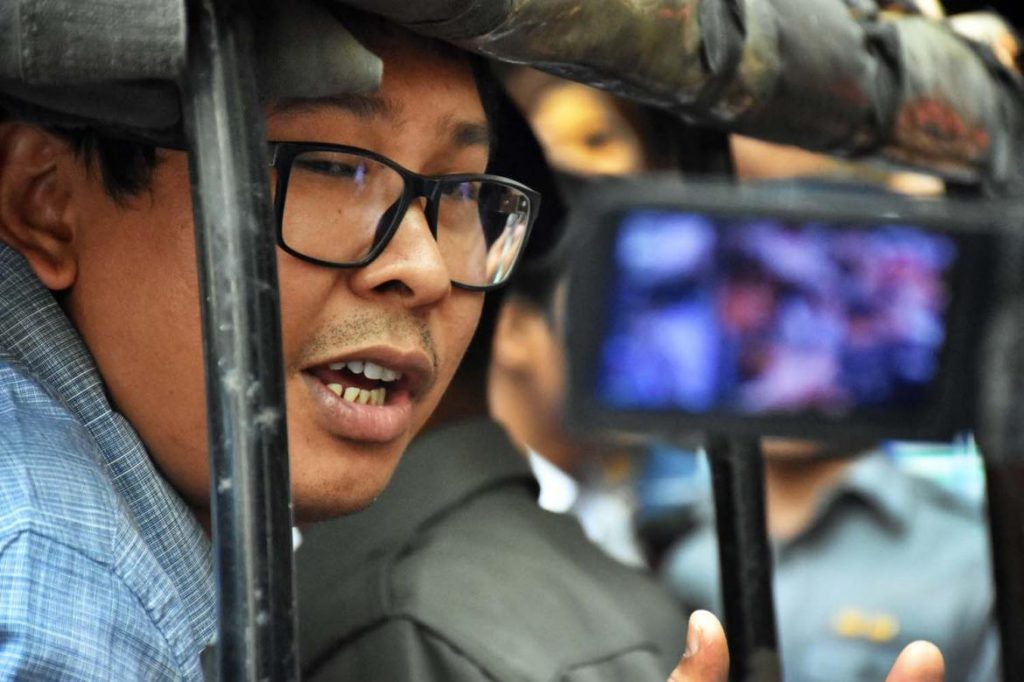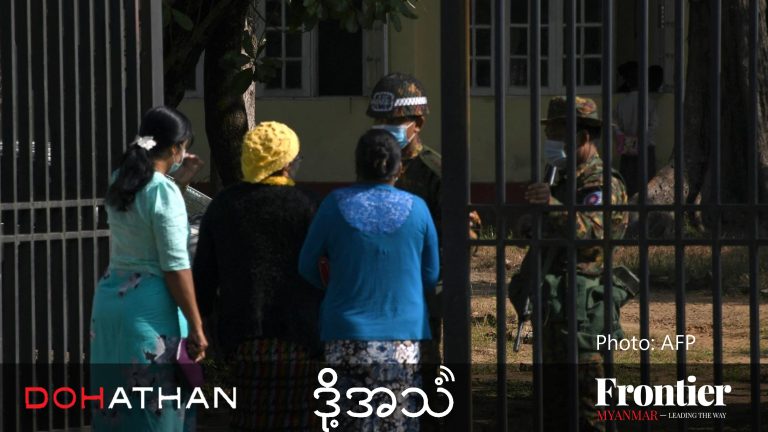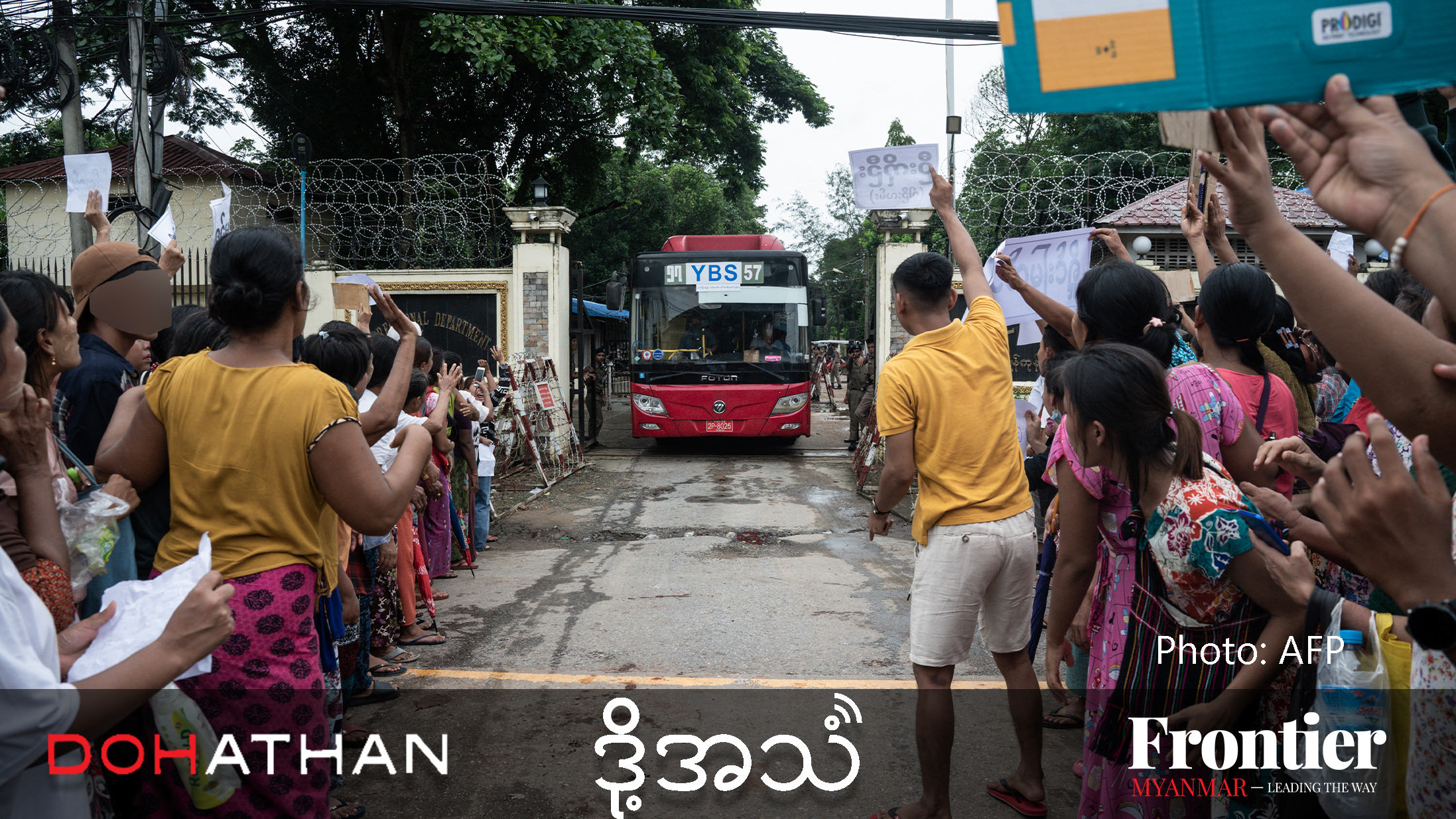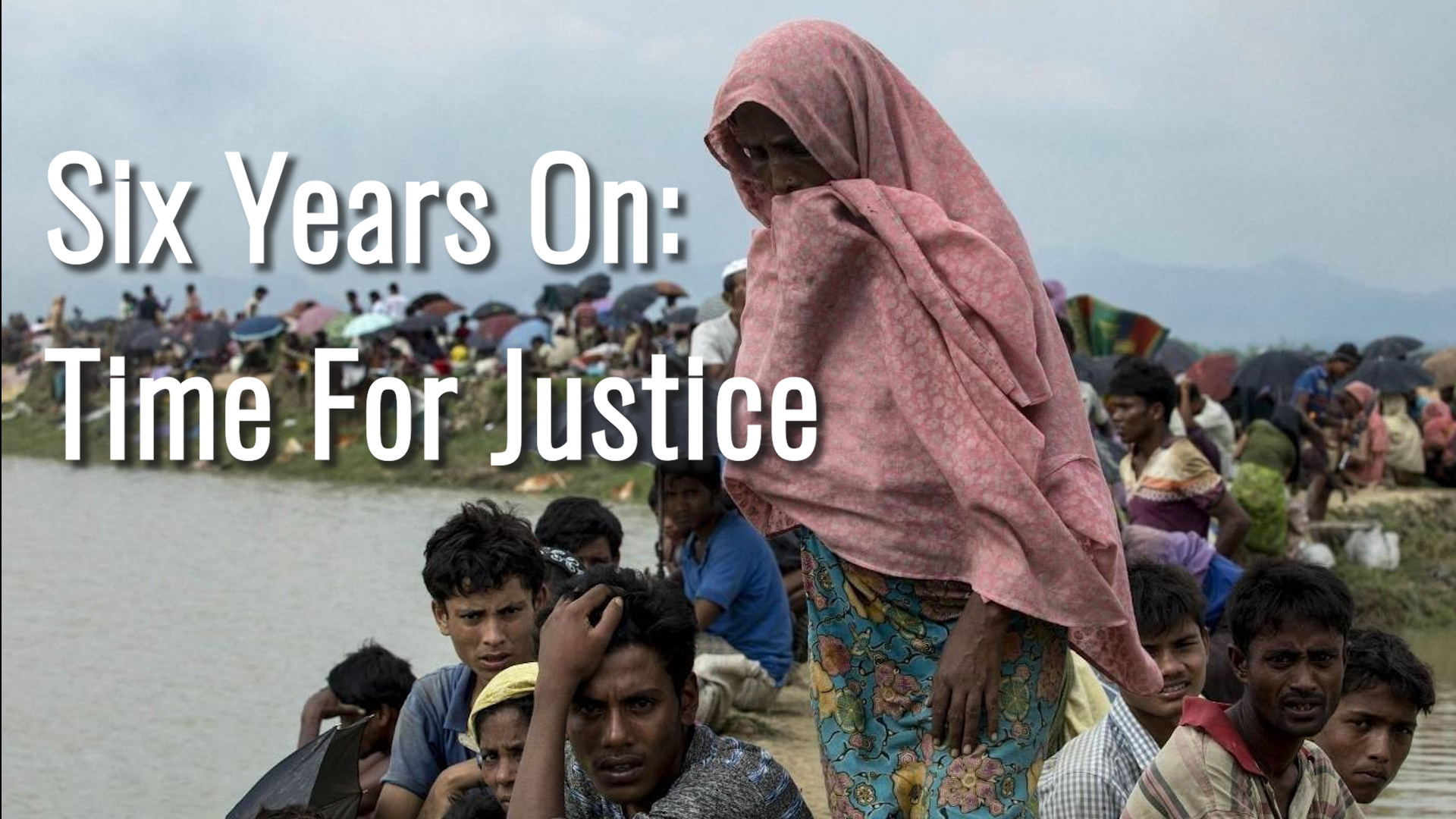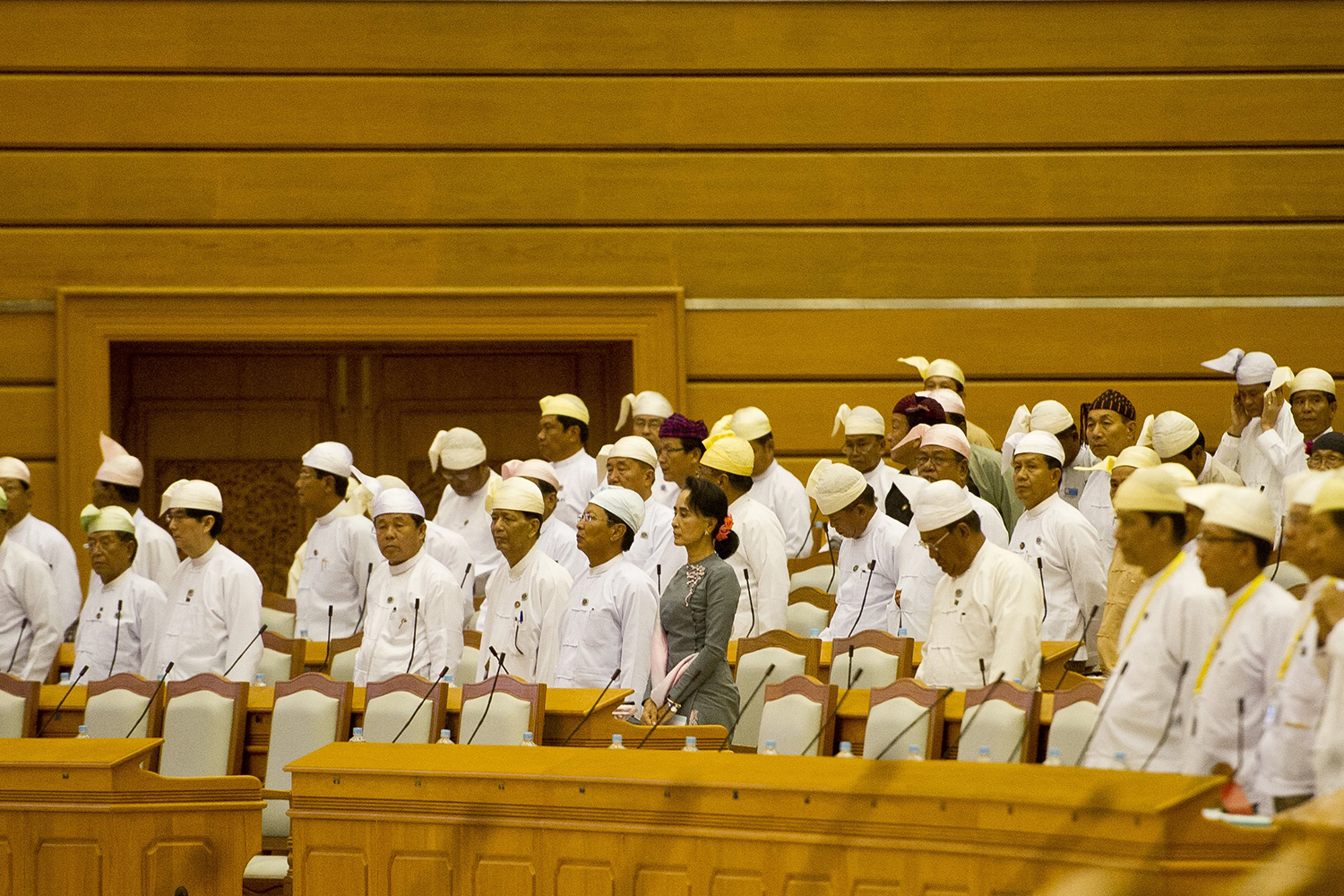The prosecution was forced to alter tactics during the Reuters journalists’ trial because a charge under the Official Secrets Act requires the existence of ‘an enemy’.
By SITHU AUNG MYINT | FRONTIER
The seven-year jail sentences for two Reuters reporters found guilty of breaching the Official Secrets Act was widely condemned as a travesty of justice, but the decision behind it deserves more attention.
The basic facts of the case against Ko Wa Lone, 32, and Ko Kyaw Soe Oo, 28, are well known. They were arrested on December 12 last year while leaving a restaurant on Yangon’s northern outskirts where they had been invited to meet policemen who gave them some documents.
The arrests came while they were investigating reports of a massacre of ten Muslim men and boys at Inn Din village in northern Rakhine State in September last year. At a court hearing, prosecution witness Police Captain Moe Yan Naing testified that Police Brigadier General Tin Ko Ko had ordered that Wa Lone be invited to a meeting so he could be handed “secret” documents and arrested.
It seems that senior police officers were under pressure to arrest the reporters by any means to prevent the Inn Din massacre from being reported. In the absence of President U Htin Kyaw, who was overseas, the decision to investigate the pair under the Official Secrets Act was made by Vice President U Myint Swe, a former Tatmadaw hardliner.
Support more independent journalism like this. Sign up to be a Frontier member.
Burma was a province of India when the British enacted the Official Secrets Act in 1923. Wa Lone and Kyaw Soe Oo were convicted under Section 3.1 (c), which refers to obtaining secret documents that “might be or is intended to be, directly or indirectly, useful to an enemy”. The law was intended to punish spies working on behalf of an enemy nation.
As the hearings continued under an international media spotlight and after the dramatic testimony by Moe Yan Naing, it became increasingly clear that it would be difficult to convict the reporters over the documents handed to them at the restaurant. This is why, in the later part of the trial, the prosecution expanded the allegations against the pair.
The police submitted evidence, extracted from Wa Lone’s phone, that they had obtained itineraries for visits to Myanmar by Pope Francis and to Rakhine by Myint Swe. The phone number of U Nyo Tun Aung, a senior member of Rakhine ethnic armed group the Arakan Army, was found in an old notebook belonging to Wa Lone when police raided his house.
Had the prosecution rested its case only on the documents given to the reporters on December 12 it would have raised the question for whom were the papers intended. The law refers to “an enemy”, but the enemy needs to be specified.
If the documents were for Reuters, then the news agency and the nation in which it is headquartered – Britain – would have to be recognised as the enemy. The prosecution knew this was impossible and began alleging that the information on reporters’ mobile phones was meant for the Arakan Army.
There are laws prohibiting contact with members of organisations deemed by the government to be illegal but the maximum jail term for a conviction is less than the 14 years for breaching the Official Secrets Act. The evidence against the Reuters pair was made to suit the more serious charge of violating the secrets law. This is why the verdict has caused outrage among legal experts in Myanmar.
The lesson from the jailing of Wa Lone and Kyaw Soe Oo is that Myanmar urgently needs a law that protects journalists from arrest for doing their jobs.
In the absence of any such law, all journalists in the country are at risk of being arrested and sentenced to long prison terms. The 95-years-old Official Secrets Act is being used to oppress the media and should be reviewed and amended. The unfair verdict against Wa Lone and Kyaw Soe Oo should be reviewed by a higher court.


